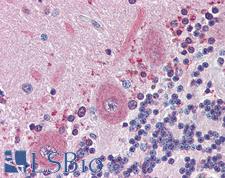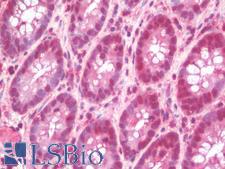Login
Registration enables users to use special features of this website, such as past
order histories, retained contact details for faster checkout, review submissions, and special promotions.
order histories, retained contact details for faster checkout, review submissions, and special promotions.
Forgot password?
Registration enables users to use special features of this website, such as past
order histories, retained contact details for faster checkout, review submissions, and special promotions.
order histories, retained contact details for faster checkout, review submissions, and special promotions.
Quick Order
Products
Antibodies
ELISA and Assay Kits
Research Areas
Infectious Disease
Resources
Purchasing
Reference Material
Contact Us
Location
Corporate Headquarters
Vector Laboratories, Inc.
6737 Mowry Ave
Newark, CA 94560
United States
Telephone Numbers
Customer Service: (800) 227-6666 / (650) 697-3600
Contact Us
Additional Contact Details
Login
Registration enables users to use special features of this website, such as past
order histories, retained contact details for faster checkout, review submissions, and special promotions.
order histories, retained contact details for faster checkout, review submissions, and special promotions.
Forgot password?
Registration enables users to use special features of this website, such as past
order histories, retained contact details for faster checkout, review submissions, and special promotions.
order histories, retained contact details for faster checkout, review submissions, and special promotions.
Quick Order
PathPlusTM BRAF / B-Raf Antibodies
BRAF is a MAPK/ERK signaling pathway kinase involved in regulating growth, proliferation, apoptosis and survival of cells. It is one of the most frequently somatically mutated genes in cancer, particularly in melanomas, thyroid carcinomas, and colorectal cancer. BRAF mutations (most frequently the V600E mutation) occur in up to 60% of melanomas and more than 60% of papillary thyroid carcinomas. BRAF mutation is also present in roughly 10% of colorectal cancers, where mutation detection is useful for differentiating CIMP (CpG Island Methylator Phenotype, BRAF V600E positive) from Lynch syndrome (typically BRAF mutation negative). Status of BRAF mutation will predict response to therapy in cases of advanced melanoma. Furthermore, BRAF-mutant tumors tend to be more aggressive and are linked with shorter survival. Thus, determining presence of BRAF mutation is an important step in the differential diagnosis of numerous malignancies. Staining of wild-type BRAF may be nuclear, cytoplasmic or membranous and is present in all tissues.
References: Nature Biotechnology. 2016. 34 (2):155–63, PMID: 26619011; Endocr Relat Cancer. 2014 Jan 30;21(2):161-73, PMID: 24243688; Mod Pathol. 2018 Jan; 31(1): 24–38, PMID: 29148538; Am J Transl Res. 2018; 10(8): 2726–2736, PMID: 30210710; Molecular Cancer Therapeutics. 2011 Mar. 10 (3):385, DOI: 10.1158/1535-7163.MCT-10-0799
2 PathPlusTM Antibodies


☰ Filters
Products
Antibodies
(2)
Type
Primary
(2)
Target
BRAF / B-Raf
(2)
Reactivity
Human
(2)
Mouse
(1)
Rat
(1)
Application
IHC-P
(2)
WB
(2)
ELISA
(2)
IF
(2)
Host
rabbit
(1)
mouse
(1)
Product Group
PathPlus Cancer
(2)
PathPlus Cancer Pathology
(2)
Isotype
IgG
(1)
IgG1
(1)
Clonality
monoclonal mc
(1)
polyclonal pc
(1)
Clone
1H12
(1)
Format
Unconjugated
(2)
Publications
No
(2)

Cancer Pathology
Cancer
BRAF / B-Raf Mouse anti-Human Monoclonal (1H12) Antibody
Human
ELISA, IF, IHC-P, WB
Unconjugated
50 µl/$440

Cancer Pathology
Cancer
BRAF / B-Raf Rabbit anti-Human Polyclonal Antibody
Mouse, Rat, Human
ELISA, IF, IHC-P, WB
Unconjugated
0.05 mg/$440
Viewing 1-2
of 2
product results










